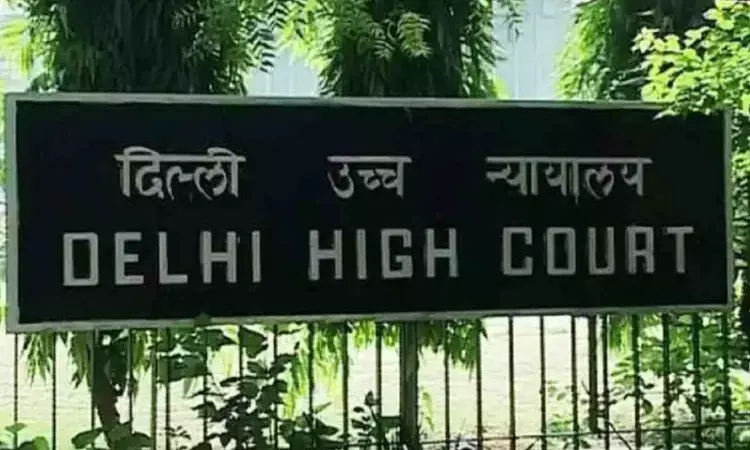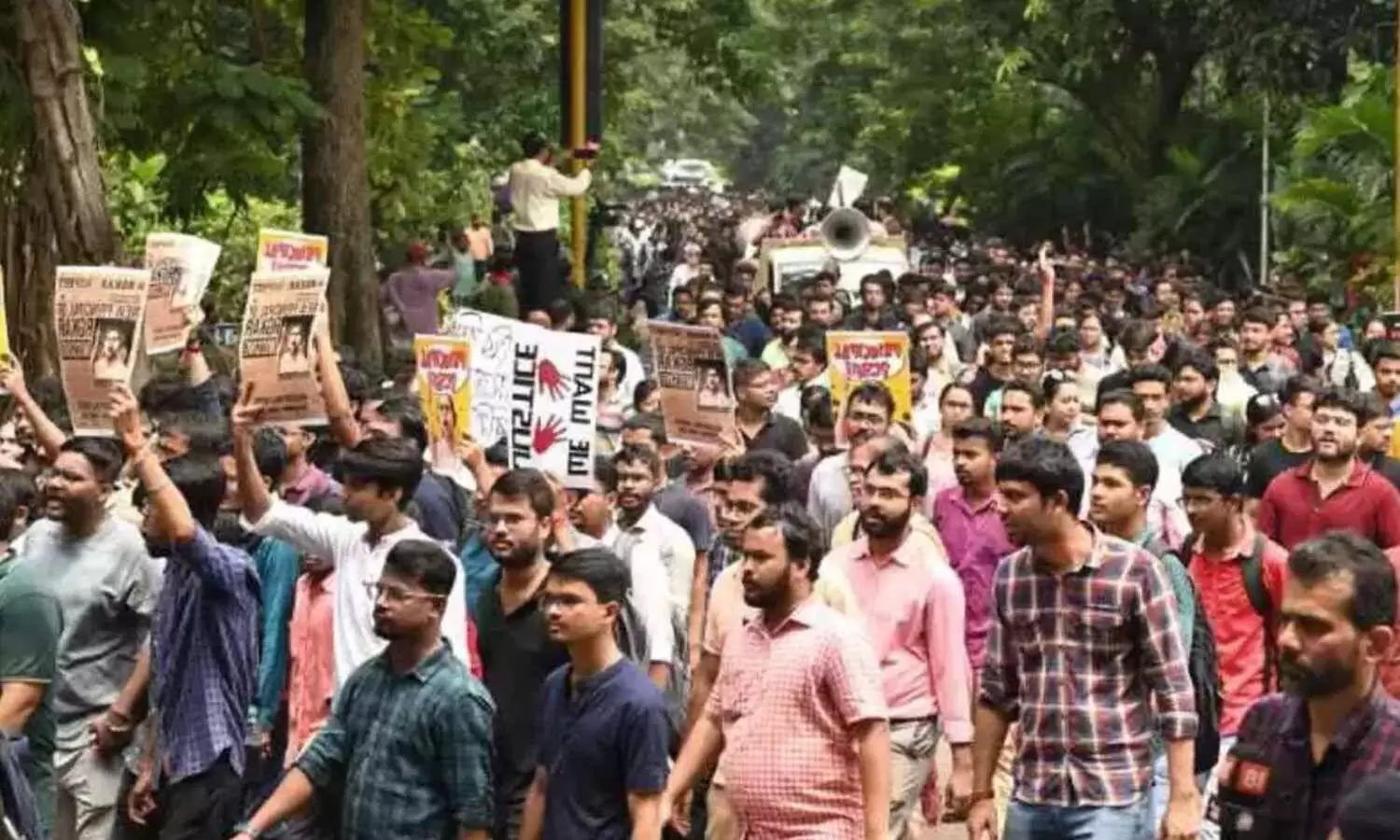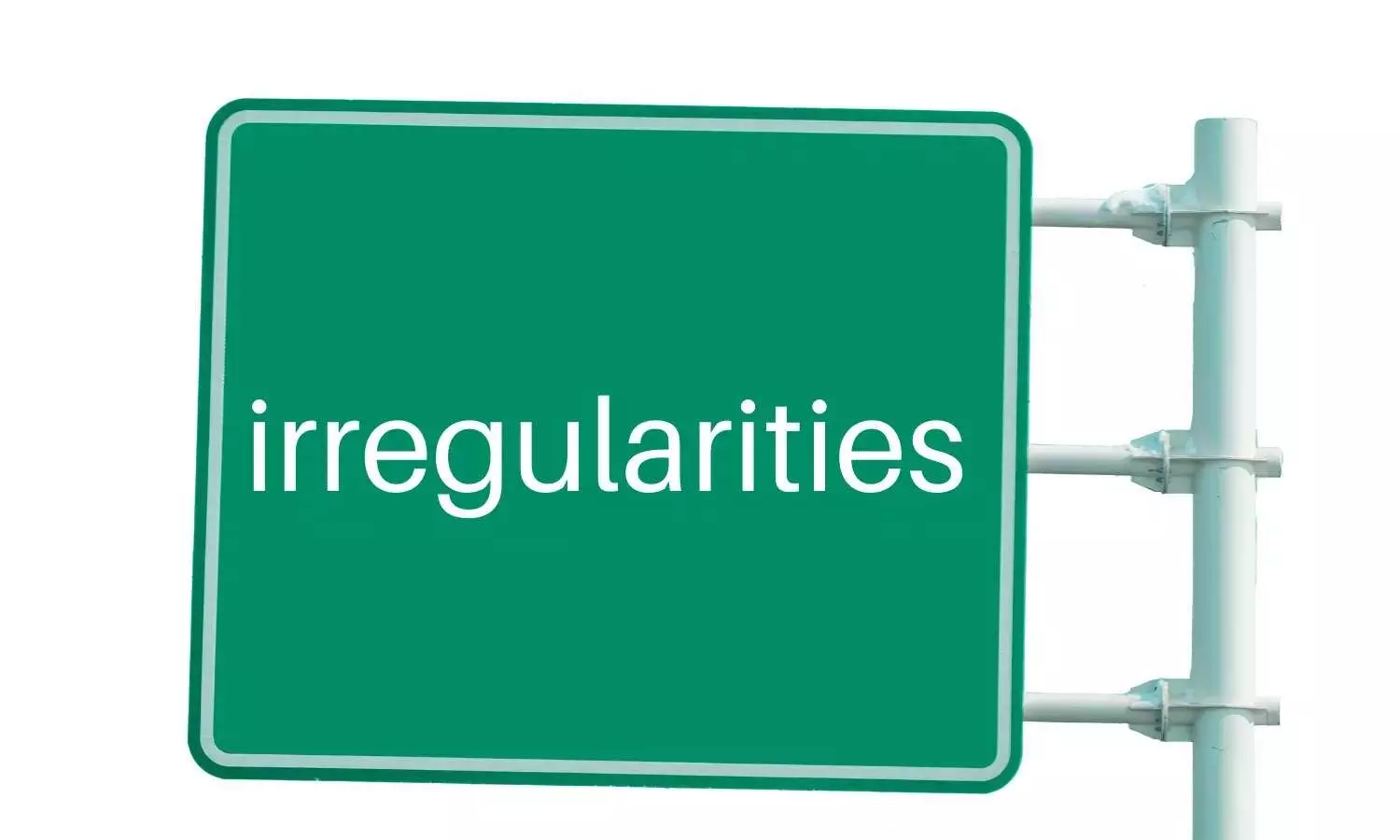- Home
- Medical news & Guidelines
- Anesthesiology
- Cardiology and CTVS
- Critical Care
- Dentistry
- Dermatology
- Diabetes and Endocrinology
- ENT
- Gastroenterology
- Medicine
- Nephrology
- Neurology
- Obstretics-Gynaecology
- Oncology
- Ophthalmology
- Orthopaedics
- Pediatrics-Neonatology
- Psychiatry
- Pulmonology
- Radiology
- Surgery
- Urology
- Laboratory Medicine
- Diet
- Nursing
- Paramedical
- Physiotherapy
- Health news
- Fact Check
- Bone Health Fact Check
- Brain Health Fact Check
- Cancer Related Fact Check
- Child Care Fact Check
- Dental and oral health fact check
- Diabetes and metabolic health fact check
- Diet and Nutrition Fact Check
- Eye and ENT Care Fact Check
- Fitness fact check
- Gut health fact check
- Heart health fact check
- Kidney health fact check
- Medical education fact check
- Men's health fact check
- Respiratory fact check
- Skin and hair care fact check
- Vaccine and Immunization fact check
- Women's health fact check
- AYUSH
- State News
- Andaman and Nicobar Islands
- Andhra Pradesh
- Arunachal Pradesh
- Assam
- Bihar
- Chandigarh
- Chattisgarh
- Dadra and Nagar Haveli
- Daman and Diu
- Delhi
- Goa
- Gujarat
- Haryana
- Himachal Pradesh
- Jammu & Kashmir
- Jharkhand
- Karnataka
- Kerala
- Ladakh
- Lakshadweep
- Madhya Pradesh
- Maharashtra
- Manipur
- Meghalaya
- Mizoram
- Nagaland
- Odisha
- Puducherry
- Punjab
- Rajasthan
- Sikkim
- Tamil Nadu
- Telangana
- Tripura
- Uttar Pradesh
- Uttrakhand
- West Bengal
- Medical Education
- Industry
Employees should not be denied medical reimbursement For Emergency Treatment Due To Non-Empanelment of Hospital: Delhi HC

Delhi High Court
New Delhi: The Delhi High Court has directed the concerned authorities to reimburse Rs.5,85,523 to a petitioner who was denied a medical reimbursement claim under the Central Government Health Scheme (CGHS) after receiving treatment at a non-empanelled hospital.
A Single Judge Bench comprising Justice Jyoti Singh found that the Petitioner could not find a hospital empanelled under the scheme as she needed emergency treatment after an accident and considering that her life was on the line, she could not be denied the reimbursement under the CGHS scheme.
The petitioner’s submission:
The Petitioner was appointed at the school on 08.08.2000 and 18.09.2013, she met with a serious accident and suffered a head injury. She was admitted to the Emergency Ward of Guru Tegh Bahadur Hospital, Shahdara (‘GTB Hospital’) from where she was referred to and admitted to Sir Ganga Ram Hospital (‘SGRH’) on 19.09.2013 in a critical condition owing to a head injury. She underwent major brain surgery and after prolonged treatment was discharged from the hospital on 11.10.2013.
She was again admitted on 23.11.2013 and discharged on 25.11.2013. As she was not recovering, she was hospitalized for the third time on 07.01.2014 and was finally discharged on 11.01.2014. The treating doctor issued a medical certificate of fitness on 01.03.2014. Petitioner claimed that she had spent approximately Rs.5,85,523/- on medical treatment and that this was an emergency admission on account of a serious accident, which was certified by SGRH on 11.10.2017. She approached various authorities including the Directorate of Education (‘DoE’) and the school but not a penny was reimbursed. Aggrieved by the non-reimbursement of her medical bills, the petitioner approached the court.
Learned counsel for the Petitioner argues that the school is an aided school and receives a grant from the Government of NCT of Delhi (‘GNCTD’) and therefore, the DoE and the School are jointly responsible for reimbursing the medical claims of the petitioner. The petitioner further added that the school did not give any reason for rejecting the claim in a communication dated 14.12.2017 to DoE, save and except stating that DoE rejected the claim of the petitioner and insofar as DoE is concerned, the prime reason for rejection of the claim was that SGRH does not fall under the CGHS Scheme, which is an erroneous stand to take since the case of the petitioner was an emergency case and as per settled law, in case an employee is admitted to a hospital in an emergency, even if the hospital is not an empanelled hospital under a medical scheme, he will be entitled to medical reimbursement of actual expenses incurred.
The respondent’s Contentions:
The learned counsel appearing on behalf of DoE contended that the Government has several empanelled hospitals under CGHS and the petitioner did not approach the empanelled hospitals during the medical emergency and therefore, no reimbursement can be made. Moreover, she was terminated after major penalty proceedings were initiated against her and the termination is under challenge before the Delhi School Tribunal, and in these circumstances, she could not claim medical reimbursement. Learned counsel for the School, on the other hand, only argued that the School is an aided school and acted on the directions of DoE.
The counsel for the petitioner referred to judgments including Milap Singh v. Union of India and Anr., 2004 SCC OnLine Del 493 and Ram Kumar Kaushik v. Govt. of NCT of Delhi and Ors., 2016 SCC OnLine Del 1467 and argued that the Petitioner had to take admission in emergency and had to undergo brain surgery, therefore the rejecting her claim for falling under the CGHS Scheme was not justified.
Court’s order:
After considering the submission of both parties, the court observed:
the medical certificate issued by SGRH evidences that Petitioner was admitted in an emergency on account of a road accident after suffering a serious head injury and underwent brain surgery. Therefore, she cannot be denied reimbursement of her claim merely on the ground that she had not undertaken treatment as per the CGHS Scheme and in a hospital not covered/empanelled under the Scheme. This stand of the Respondents to deny the medical reimbursement claim is therefore wholly misconceived and cannot be accepted.
“Merely because the certificate was issued by the hospital belatedly can also not be a ground to deny the claim of the Petitioner in the absence of any challenge to the genuineness or authenticity of the said document. In fact, it is not even disputed by the Respondents that Petitioner was admitted in an emergency in SGRH and/or that she underwent surgery and follow-up treatment,” the bench added. Hence, the court directed the concerned authorities to disburse a sum of Rs.5,85,523/- to the Petitioner within a period of six weeks from the date of receipt of this order.
To view the order, click the link below:
Sanchari Chattopadhyay has pursued her M.A in English and Culture Studies from the University of Burdwan, West Bengal. She likes observing cultural specificities and exploring new places.




